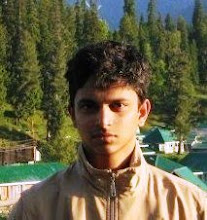Review: Bosnian guitarist Denis Azabagic's concert at Panjim
Nigel Britto
The guitar is a “small orchestra”, Spanish virtuoso Andres Segovia once argued—a metaphor perhaps indicative of the wide range of textures and sounds this comparatively diminutive instrument is capable of, defying its essentially small voice. On Thursday at Kala Academy, classical guitarist Denis Azabagic justified Segovias’ hypothesis.
Quite unlike the plethora of violin and piano recitals, the classical guitar still remains a rare breed inside Goa’s concert halls. So when the Goa Guitar Guild and the Calcutta Classical Guitar Society invited the award-winning Azabagic in Goa, it was a special moment. The Black Box was sold out two days prior. For the lucky few who got in, this was what they were in for: A programme of largely-unknown composers, an unfamiliar performer from far-away Bosnia, and a single classical guitar. How would this combination work?
As it turned out, exceptionally well. The almost two hour-long concert featured works both by well-known guitar composers (Heitor Villa-Lobos, Fernando Sor) as well as contemporary ones with whom Azabagic shares a personal connection (Vojislav Ivanovic, Alan Thomas). Azabagic’s decision to use a microphone would have attracted a disapproving glance or two from Segovia, whose disdain for amplification is legendary. But given the location and its acoustics, Azabagic’s seemed to be a good decision.
He started with Lobos’ ‘5 Preludes’, one of the most famous pieces in 20th century classical guitar repertoire (though mostly associated with students rather than performers). A unique feature of Lobos’ music is the juxtaposition of the European classical tradition with fare from his native Brazil, a mixture even more pronounced on Azabagic’s exquisite Steve Connor-crafted instrument that at times seemed to play itself—so light was the touch.
Contemporary composer Vojislav Ivanovic, whose works feature extensively on the repertoire, was Azabagic’s pre-war teacher. The six Café pieces’ ranged from the sublime to the catchy, and in parts had distinct Latin American influences. Azabagic’s superior technique was on full display throughout, but was especially pronounced through ‘Nostalgia’, where he demonstrated exceptional control of tonality, and peppered it with a perfect tremolo.
Contemporary composer Vojislav Ivanovic, whose works feature extensively on the repertoire, was Azabagic’s pre-war teacher. The six Café pieces’ ranged from the sublime to the catchy, and in parts had distinct Latin American influences. Azabagic’s superior technique was on full display throughout, but was especially pronounced through ‘Nostalgia’, where he demonstrated exceptional control of tonality, and peppered it with a perfect tremolo.
Azabagic’s playing, though undoubtedly virtuosic, is subtle and reserved. He never tries to impress by being flashy, even when tackling tougher fare like that of Joaquin Rodrigo, who is recognized the guitar’s first great composer (mainly due to Concierto de Aranjuez, the first orchestral work written for guitar). “We guitarists share a love-hate relationship with Rodrigo,” Azabagic quipped as he embarked on the Spaniard’s “Invocation and dance”.
Azabagic, who struck a contemplative pose before beginning any new piece (as if to say: “that was testing the tuning, now this is the piece on the programme you’re expecting to hear”), then ventured in completely unknown territory—A suite called ‘Out of Africa’ by his friend Alan Thomas. The four parts are supposed to describe a day, but were played uncharacteristically clinically and didn’t quite convey that message.
Just as he started, Azabagic closed the show with a piece bordering the mainstream of his instrument’s literature—Fernando Sor’s ‘Variations on Mozart’s theme Op. 9’. It was executed to perfection with the gentlest of touches, before he retired to the pavilion, only to be called back out by a persistent applause that refused to die down.

No comments:
Post a Comment